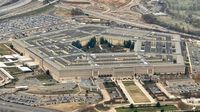On September 6, 2025, President Donald Trump signed an executive order that set off a seismic shift in both the language and symbolism of American military power: the Department of Defense would now be known, at least in part, as the Department of War. The move, long teased by Trump and his allies, is more than a simple rebranding. It marks a return to a historical label last used in the aftermath of World War II and carries implications that ripple through domestic politics, global alliances, and the very identity of the United States on the world stage.
The announcement, made official by the White House on Thursday, was accompanied by a flurry of activity. Pentagon websites and signage are to be updated, the public affairs briefing room will be renamed the "Pentagon War Annex," and Secretary Pete Hegseth will now carry the title "Secretary of War." According to Fox News, the administration describes the change as part of a broader "warrior ethos" campaign, with the executive order permitting "Department of War" as a secondary title while Congress considers whether to make it permanent.
Trump, never one to shy away from spectacle, explained his rationale in characteristic fashion. "Everybody likes that we had an unbelievable history of victory when it was Department of War. Then we changed it to Department of Defense," he told reporters on August 25. The president doubled down on Friday, emphasizing, according to The Independent, that the renaming "indicates America has the strongest military." For Trump and his supporters, the term "defense" has grown too passive in an era of great-power competition. As Pete Hegseth put it on Fox & Friends, "We won WWI and WWII not with the Department of Defense, but with a war department. We're not just defense, we're offense. Words and names and titles matter."
Yet the decision is not without controversy—at home or abroad. The original War Department was renamed in 1947, as part of postwar reforms that sought to recast the United States as a leader in a new international order. The National Security Act of 1947 deliberately shifted the focus from waging war to preventing it, emphasizing deterrence, alliances, and diplomacy. The language of "defense" was chosen to reflect a nuclear age in which the stakes of conflict had never been higher. To reverse that now, critics argue, is to abandon a legacy of restraint and signal a return to the blunt assertion of military might.
From a foreign vantage point, the symbolism is stark. Allies in Europe, Japan, and Australia—already wary of shifting U.S. commitments under Trump’s leadership—may interpret the rebrand as a move away from partnership and toward unilateral action. In regions like the Middle East, North Africa, and Africa, where the U.S. presence is often associated with conflict, the new name risks confirming the most negative perceptions. As noted in The Independent and Politico, adversaries such as China and Russia will likely seize on the rhetoric, contrasting their own narratives of "peaceful development" or defensive alliances with what they can now portray as an openly belligerent America.
Domestically, the implications are equally complex. The Pentagon remains one of the few U.S. institutions that commands broad public trust across political divides. Recasting it as the Department of War, however, could threaten that trust by politicizing the military and reframing its mission. Military families may find their sacrifices interpreted not as service in defense of peace, but as participation in a permanent state of conflict. Generationally, the symbolism may resonate poorly with younger Americans and international youth, many of whom are skeptical of endless wars in Iraq, Afghanistan, and beyond.
Of course, not everyone sees the change in a negative light. Supporters argue that "war" projects strength and clarity in a multipolar world where rivals like Russia, China, and Iran test American resolve. They see the rebrand as a return to military tradition, reconnecting today’s armed forces with a lineage of courage and sacrifice. In their view, it strips away decades of "soft language" and restores the military’s true purpose: to fight and, if necessary, to win wars.
The economic and bureaucratic consequences, however, are significant. Experts cited by The Independent estimate the renaming could cost taxpayers over $1 billion, as hundreds of Pentagon agencies, global bases, stationery, and other signage would need to be updated. Trump, for his part, downplayed the expense, saying, "Not a lot. We know how to rebrand without going crazy." Still, the move comes at a time when the Biden administration had proposed a $50 billion cut to the Pentagon’s fiscal year 2026 budget, redirecting funds toward border security and the elimination of certain government programs. The juxtaposition of a costly rebrand with promises of fiscal restraint has not gone unnoticed.
Legally, the process is fraught with hurdles. Trump’s executive order allows for symbolic usage, but a full renaming requires congressional approval—a process that could take months or even years. Treaties, procurement contracts, and alliance documents that reference the Department of Defense would become ambiguous, potentially sowing confusion within NATO, the United Nations, and bilateral defense pacts. Meanwhile, Republicans have already introduced legislation in both the House and Senate to codify the change, but the outcome remains uncertain.
For many observers, the move is emblematic of Trump’s broader geopolitical philosophy: transactional, combative, and less restrained by multilateral norms. It signals a United States less interested in the burdens of global leadership and more focused on projecting raw strength. For allies, that is unsettling; for adversaries, it may be provocative. For much of the Global South, it confirms a suspicion that U.S. power is about war, not partnership.
Ultimately, the debate over what to call America’s military bureaucracy is about much more than semantics. It is about the nation’s identity, its military ethos, and its place in an increasingly unstable world order. The choice of words speaks volumes, revealing whether the United States still sees peace as worth defending—or whether it has resigned itself to war as its permanent condition.
As the world watches, America’s decision will shape perceptions for decades to come. The echoes of history are unmistakable, but the future remains unwritten.



